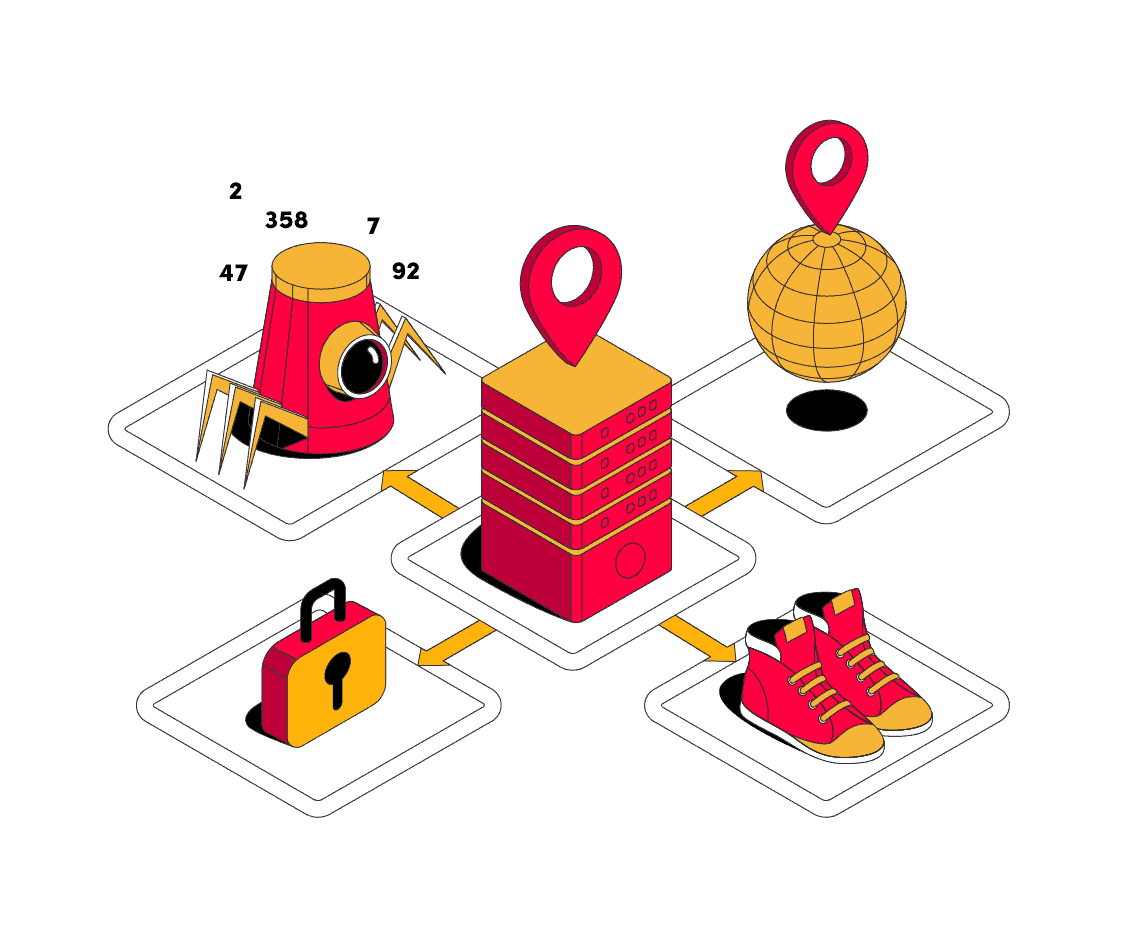Why Use a Proxy Server?
The main proxy use cases explained.

“Why use a proxy?” is a very frequent question we encounter. For beginners, it helps to answer another important consideration, “Do I need proxies at all?” More experienced users turn to it trying to figure out, “What more can proxies do for me?”
There are many reasons behind using a proxy server. For your convenience, we’ve divided them into two categories: proxies for individual use and proxies for businesses. In reality, the distinction is not as clear-cut, and the categories can overlap.
Why Use a Proxy Server at Home?
These use cases mostly involve efforts to improve privacy, avoid artificial restrictions, and buy hard to get items for individual use.
1. Improve Online Privacy
2. Access Geo-Restricted Content
If you told me you’ve never been denied access because of the lovely, “We’re sorry, this content isn’t available in your country” message, I’d have to call you out. Video content is the one restriction that we encounter the most often. YouTube, Netflix, BBC iPlayer, you name it – all have some limitations according to their users’ locations. The same goes for other kinds of websites, most commonly including e-commerce and retail. Proxies change your online location to any country in the world, letting you access content like a local.
3. Overcome Website Blocks and Restrictions
Academic institutions, workplaces, and even some countries (ehem, China) tend to put restrictions on what websites you can access. Proxies help you go around them. For example, you can use them to unblock Instagram, read Reddit, or listen to music in Spotify.
4. Buy Limited Edition Items
This applies to all things that are high in demand and have limited supply. The most popular example would be buying shoes, widely known as sneaker copping. There’s a big aftermarket for rare sneakers, and it’s very hard to buy a pair directly from the store without a sneaker bot and good sneaker proxies. Another example could be ticket scalping. Shopping for limited edition items may also be classified under businesses uses, depending on its scale.
Why Use a Proxy Server as a Business?
Businesses use proxies for tasks that are larger in scope and focus on commercial interests. In other words, there’s little reason to partake in them outside of the business hours. Except, perhaps, for web scraping, which is a fun thing to do for data nerds.
1. Scrape the Web
Web scraping allows any business to quickly gather large amounts of data from public sources. It’s especially valuable when you need to collect information from a website that has no API or when its limits aren’t enough. In practice, automated data collection is very hard to do with a single IP address because websites limit the requests you can make. This is where proxies come in. Rotating residential proxies supply constantly changing IPs that belong to real devices.
2. Aggregate Data from Multiple Sources
A subset of web scraping, data aggregation lets companies efficiently collect data from several sources. Then, they process this data and selectively present it as a service. Such data aggregators include price comparison and travel fare websites, and they heavily rely on proxies to run their businesses.
3. Research the Market
Market research includes collecting product data, pricing information, doing sentiment analysis, and other similar tasks. Proxies help not only by speeding up data collection, but also giving access to information in different locales. One particularly attractive target for market research is Amazon, but it’s also impossible to scrape at any reasonable scale without a proxy server.
4. Monitor SEO Metrics
Proxies are especially relevant to the wide variety of SEO companies that work with keyword research, rank tracking, and SERP analysis. Their software continuously scrapes search engines – primarily Google, but also Yandex, Bing, and others – to produce insights for marketers and SEO specialists. Knowing how vigilant search engines are against bots, digital marketing would be much harder and slower without SEO proxies.
5. Prevent Ad Fraud
6. Manage Multiple Social Media Accounts
Social platforms like Instagram, Twitter, Facebook, and Youtube strictly limit the number of accounts that can be run from the same IP address. Understandably so, many people want to overcome such restrictions in order for their business to operate properly. An example of such a business would be a social media management company that needs to run several different accounts daily without encountering any blocks or bans. Alternatively, maybe you have multiple social media accounts of your own and don’t want the risk of getting one or the other banned. Proxies can help you avoid this outcome.
7. Protect Intellectual Property
Brand protection involves traveling through thousands of websites to look for counterfeit products, copyright-infringing images, and other content. Proxies help here in two ways. First, the web is so large, that going through all the websites manually would be impossible. So, you need to automate the process. Second, copyright infringers have mechanisms to hide infringing content depending on the visitor’s identity. Proxies give you different IP addresses and hide your own.
8. Improve Server Speed and Security
A reverse proxy server has the ability intercept all connection requests. It can then screen them like a firewall to protect from hackers or misuse; spread them around multiple servers like a load balancer to ensure good performance; or cache static content to improve speed and reduce traffic use. CDNs like Cloudflare are effectively glorified proxy servers with extra features sprinkled on top.

Frequently Asked Questions About Proxy Use Cases
A proxy is a server that stands between you and a website or other resource, and routes all connection requests through itself.
Yes, it is. The fact that you’re using proxies won’t get you in trouble – but how you use them might. So, don’t do anything illegal, like scam people or scrape private data.